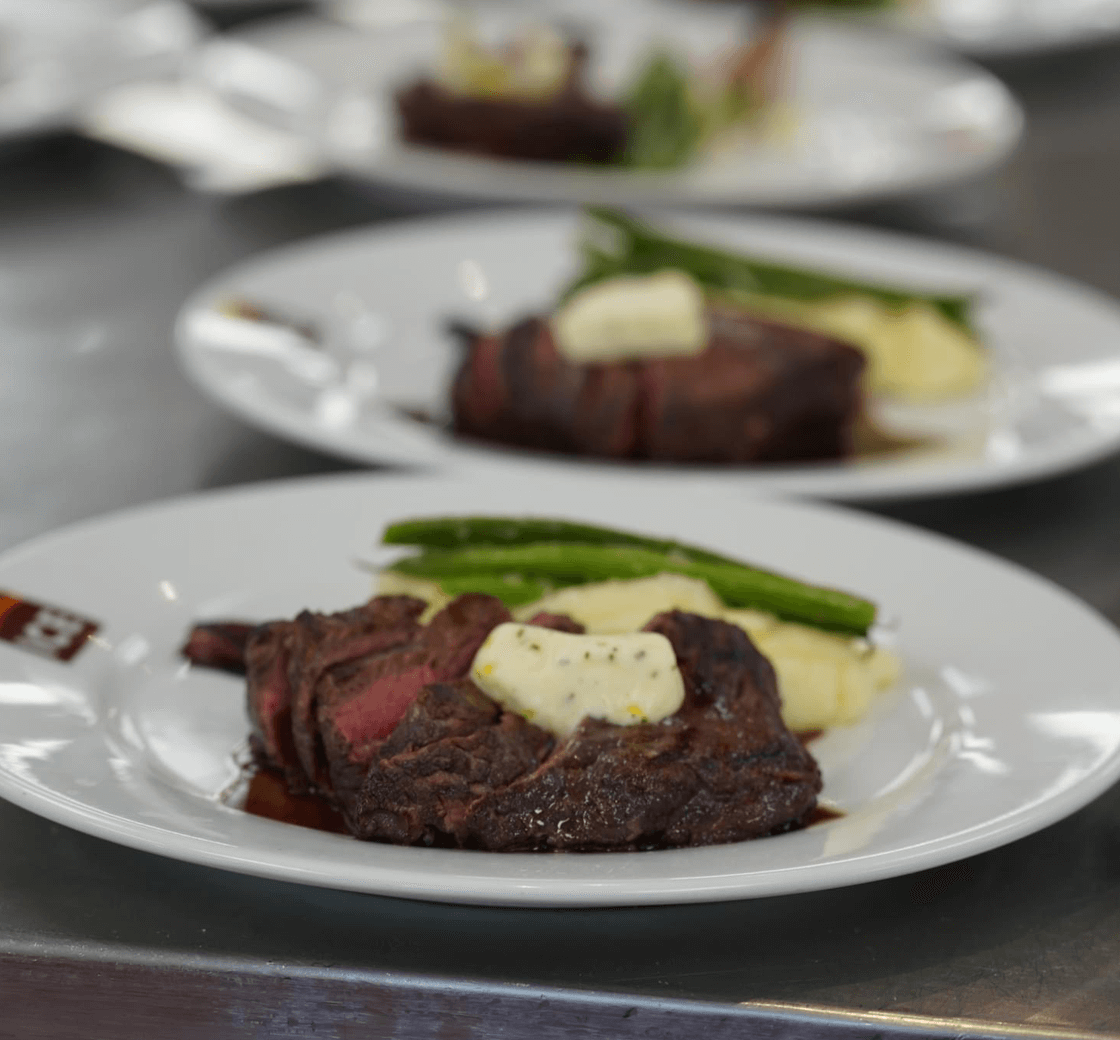
Whether you're making a casual dinner or a gourmet multicourse meal. We'll cover techniques including poaching, sautéing, grilling and cooking risotto. Using your newly acquired skills, we'll make and dine on a complete meal of: grilled vegetable gratin; mushroom risotto; pan-seared steak with compound butter and mesclun salad with Dijon vinaigrette.

You will work in teams to execute the class menu. At the end of class, participants gather to enjoy the food they have prepared. Wine is served with meals in most classes. All class menus are subject to change. While a snack platter is offered in both morning and evening classes, you may want to consider a light snack before joining us for class. Students are encouraged to bring a light lunch or dinner to all pastry classes.

You will work in teams to execute the class menu. At the end of class, participants gather to enjoy the food they have prepared. Wine is served with meals in most classes. All class menus are subject to change. While a snack platter is offered in both morning and evening classes, you may want to consider a light snack before joining us for class. Students are encouraged to bring a light lunch or dinner to all pastry classes.
Combine light, flaky crust and seasonal summer fruit fillings to wow any crowd! ICE pastry chefs will give you all the secrets for making a perfect pie crust, teaching you the same techniques and tips used by ICE career pastry grads at New York's top restaurants. Working in teams of two, you'll make two 6-inch pies from scratch. Choose from: strawberry rhubarb crumble; peach pie with almond crumble; blueberry lattice; and cherry lattice.
Master the art of classic Afternoon Tea in this 3-hour, hands-on class! You'll prepare a delectable spread from scratch, including light and fluffy scones, homemade strawberry jam, and rich clotted cream. Learn to bake a perfect Victoria Sponge and assemble delicate cucumber and smoked salmon finger sandwiches. Impress your friends and family with your newfound skills!
Learn to prepare a delicious Greek feast! In this hands-on class, you'll master classic Mediterranean flavors. Your menu includes baked Fish Mediterranean; savory Greek Chicken and Potatoes; Prasini Salad with dill and scallions; and spicy, rustic Tsigareli – all finished with fresh Tzatziki. Discover the joy of authentic Greek cooking in this fun, engaging session!
While handling poultry can seem daunting, it really can be a clucking good time! In Knife Skills 2 you'll discover the fundamental techniques required to transform a whole chicken into popular cuts. We'll cover such topics as trussing and spatchcocking, ensuring you leave with the confidence to tackle any chicken preparation in your home kitchen. No matter how you feel when you enter the class, the class promises to enhance your knowledge of poultry preparation and take your skills to the next level. While not a requirement, it helps to have practiced the skills of Knife Skills 1 before taking this class.
Ranked as America’s Best Culinary School (USAToday 2019), our roster of Chef-Instructors have run top kitchens around the globe.
| (Separate multiple addresses with commas like: john@aol.com, jane@aol.com) | |